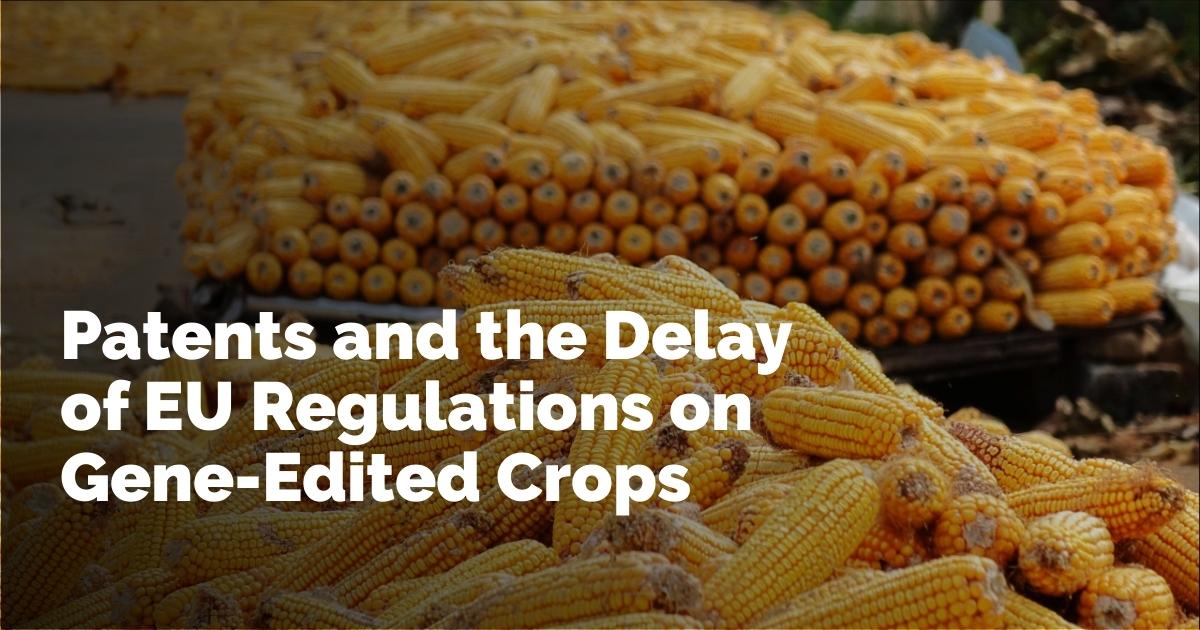Introduction
The debate over the patentability of gene-edited crops continues to stall the progress of European Union regulations designed to support new genomic techniques (NGTs). As EU ambassadors prepare to vote on the latest draft compromise, questions remain about the implications of patent policies on innovation, competition, and the future of agriculture in Europe. The recent proposal by the European Commission, although aimed at promoting technological advancements, has raised concerns among various stakeholders about the balance between protecting intellectual property and fostering fair competition.
Background: The Patent Conundrum
The patentability of gene-edited crops, particularly those developed using advanced techniques like CRISPR-Cas9, has become a contentious issue. While the seed industry maintains that patents are essential for safeguarding innovation, critics argue that such protections may disadvantage smaller breeders and consolidate power within large agro-industrial corporations. This tension has been a key point of discussion among EU member states since 2023, when the Commission introduced new regulations to facilitate NGT technology.
Case Study: Patent Controversy in Cold-Resistant Maize
A notable example of the challenges posed by patent policies in agriculture involves German seed giant KWS and its patent on cold-resistant maize traits. These traits, which are reportedly widespread in many crops, have led to legal disputes with smaller breeders who fear that enforcement of such patents could threaten their businesses.
One breeder, Raaphorst-Travaille, has expressed concern over what she perceives as the unjust nature of these patents. Despite attempts by NGOs like 'No Patents on Seeds' to oppose them, the European Patents Office upheld KWS's patent. This decision emphasized the complications in distinguishing between genetic modifications and traits arising from conventional breeding.
New EU Regulations and Their Implications
The European Commission's 2023 regulation aims to streamline the marketing of NGT-based crops, presenting both opportunities and challenges. While these advancements could help crops withstand increasingly extreme environmental conditions, the lack of requirements for companies to disclose genetically modified trait detection methods could hinder transparency and traceability, permitting potential monopolization through patents.
Under the current biotech directive, gene-edited crop patents extend to all crops with similar functions, affecting even those bred conventionally. Critics like the European Coordination Via Campesina (ECVC) argue for a review of this directive to restrict patent scope and enhance transparency.
Ongoing Negotiations and Legislative Stalemate
Efforts to address the patentability issue have hit several roadblocks. Attempts by Poland to introduce socio-economic considerations in patent legislation were retracted, leaving patent transparency provisions untouched in the newest draft. The regulatory deadlock points to the complex interplay of interests among EU member states, as well as the influence of industry lobbying on policy direction.
The Role of Industry: Protectors or Gatekeepers of Innovation?
Industry associations such as Euroseeds argue that strong patent protections incentivize investment in research and development. They advocate for creating favorable conditions for small companies to access advanced technology, framing patents as necessary to prevent research migration outside Europe, which could deprive local farmers of useful innovations.
However, critics like Raaphorst-Travaille and members of the ECVC contend that patents can stifle diversity and innovation rather than promote them. This viewpoint is exemplified by cases like Nordic Maize, where patents reinforce corporate monopolization rather than true technological advancement.
Conclusion
As EU ambassadors deliberate on the regulation of gene-edited crops, the balance between innovation and equity remains precarious. Finding a middle ground that respects intellectual property rights while ensuring competitive fairness in the agricultural sector is essential. Further discussions and transparent decision-making are crucial for resolving the complexities surrounding gene-editing patents in the EU.
The decisions made in the coming months will significantly influence the trajectory of agricultural innovation, the livelihoods of small breeders, and the sustainability of Europe’s agricultural future in the face of climate change challenges. As such, stakeholders across the spectrum must engage in constructive dialogue to shape a policy framework that serves both the imperative of technological advancement and the principles of equity and fairness.
출처 : Original Source

